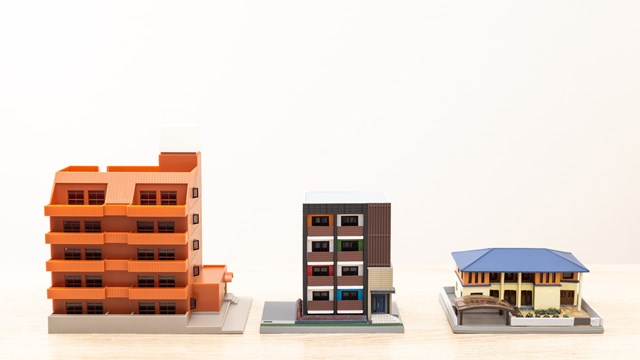You think it can’t happen in your community but it does. And, all too often, I’m afraid.
-A Chicago woman, beaten and robbed near the entry to her condominium building, files a negligence suit against the association in January 2015, charging the association and its security service failed to provide sufficient safety measures, also citing an unmanned lobby desk during the assault.
-An Orlando condominium association slides into "civil wars" as unresolved disputes lead to violence. With attorney fees and court costs averaging $100,000, litigation is not the most cost-effective way to resolve a dispute.
-The Arizona Republic reports that police blame association members for improperly screening prospective residents after condominium areas degrade into drug paraphernalia-strewn, high crime neighborhoods.
Bad Things Happen to Good Buildings
Criminal activity is a threat to condo occupants and, in terms of liability and living standards, to associations and property managers. Thefts from property and cars, unit burglaries, muggings, robbery and assaults occur. Some criminals even single out condominium areas to prey on women who have bought into them expecting relative safety. Such a perception is sometimes the result of a marketing program, raising prospective residents' expectations.
Trustees are expected—in fact, bound by rules and regulations, as well as state laws—to act on suspected criminal activity. Allowing a criminal climate to develop will put residents at risk and may subject the association to liability lawsuits costing thousands of dollars, whether the association wins or not. Condominium lawyers stress repeatedly that associations aren’t immune from claims, even with D&O (directors and officers) liability coverage. Prevention and response are critical, as failure to be proactive can result in prosecution for crimes against residents. Not following their own rules and regulations is an invitation to a claim.
Liability suits are increasing, and volunteer board members are less willing to risk the role without D&O protection. Nor should they. “The condominium association should have D&O coverage for the trustees and management,” said Frank Flynn, managing partner at The Flynn Law Group, Boston. “They should also have insurance with regard to dishonesty and employee theft.”
So what does the board do to protect residents? And when?
Don’t Ignore Problems
For starters, don’t look the other way, but respond lawfully. Don’t break the law while trying to monitor illegal activity, says Flynn. “In Massachusetts, they have to be aware of federal wiretapping laws.”
Drug activity is quite detectable. “Neighbors notice that every five minutes there are people coming to this one unit, making short visits,” Flynn said. “Somebody goes out of the unit, gets into a car and drives around the block with somebody different every time, then gets out of the car—the ‘drive to nowhere,’ it's called. What would that tell you? Trafficking.”
Serious criminal behavior is less common in the region, says attorney Gary Daddario, a partner at the law firm of Winer & Bennett in Tyngsboro, Massachusetts, but being aware is important. “I wouldn't say that I see this as being a very big or very common occurrence with condominiums, at least in Massachusetts and New Hampshire, the two states that I practice in,” he said.
Usually, it is drugs, agrees attorney Michael Merrill, a partner with the law firm of Merrill & McGeary in Boston. As a first step, the board can monitor things. “You can monitor it, then call the police, who will assign a detective and monitor the situation themselves.” Sometimes, mostly in what he calls moderate-income areas, units essentially become “flop houses” for drug use. “People start bringing in mattresses and the unit owners see frequent visitors; somebody peers inside and sees the mattresses.”
First step? “Rule No. 1 is contact the police,” says Merrill. “These are criminal matters; the trustees are not the police. They should call, and let the police do their job.” This is their first responsibility as managers. Unless they’re prohibited by circumstances they can’t control (such as budget cuts), police usually respond. “In the Boston area, they’re consumer driven; one of their goals is to respond to complaints, and you'll find there’s a person there to handle that complaint. Oftentimes, people are intimidated by what they think is a dangerous situation, or they feel it’s potentially threatening to them. They have to decide, when do you ‘turtle up’ and when do you do something? When people call me and say they’re scared of somebody, I still say, call the police.”
Police Work
Once that’s done, let them do their work, Merrill says. “The other unit owners are going to want to know how they’re handling it; the board has to kind of handle that, depending on the type of complaints they're getting from them.”
Daddario concurs. “I think, overall, that (involving the police) increases the chances that it gets effectively dealt with, and improves the overall safety for the association.”
Doing so lives up to the expectations outlined in most condominium rules and regulations. “They have a duty to uphold the value of a unit,” said Flynn. “Boards are empowered and required to uphold those condo provisions.”
If police action is delayed, there are options. “I had this crazy case where a unit owner got into drugs, and got so into drugs that (the unit owner) ended up giving their condo unit to a drug dealer. The dealer was using the unit to sell drugs. Strange people were coming in, creating a very dangerous situation. We contacted the police, who couldn't find out much at first, so I took the owner to court on an injunction; we alleged misconduct. We were able to show that from witnesses, other residents, camera surveillance of what was going on. We got a court order to stop this activity, against the unit owner. Later, the owner also became delinquent in his condo fees. We got the dealer out of there—the police pulled him out—we secured the unit, and then brought a collection action/mortgage foreclosure on it.”
This was not an overnight solution, and it required several steps by the board and lawyer after police were brought into the matter. But it illustrates that police work is not the only way to best the criminals. “I use the misconduct section of Massachusetts condo statutes a lot,” Flynn said. “In cases where there is criminal activity, use the conduct section against tenants, the unit owner, or anyone through the unit owner who’s causing the problem. Then go to court, in conjunction with the police. They are always the ones to stop criminal activity—not the lawyer or trustees.”
This illustrates why condominium rules and regulations must address what happens if a resident is suspected of violating laws, and actions the board would take if someone were found guilty of doing so. Don’t make up your own; consult an attorney or management firm.
“It's not as clear as people would think,” Merrill said. “The board usually has a great deal of discretion as to what to do, with advice of a manager or lawyers. If they’re acting on good faith, the board is usually protected. The most important thing is to identify the situation, which is complicated and may be beyond their field of expertise, and ask a manager or a lawyer for advice. It’s the nature of people to think they can make all the decisions for everyone and everything will be fine, but they don’t have that expertise. When someone’s a trustee, acting on behalf of the condo association, they have an obligation to act in a more reasonable way.”
“If you're concerned about behavior that rises to the level of criminal, one thing to do to keep the community on the right side of the law is to be consistent about enforcing your own rules and regulations,” Daddario said. Furthermore, applying the rules may deter crime. “If unit owners believe the community is being well monitored, and rules are enforced consistently and appropriately—that bad behavior isn’t going to be tolerated—hopefully they're less likely to feel that this is the appropriate neighborhood in which to attempt to engage in illegal conduct.”
Following the Rules
Rental units seem to be the root of more problems. “I don't think I've had experience where an empty unit ended up being related to any criminal conduct,” Daddario said. “Most associations do a pretty good job of dealing with an empty unit, making sure at a minimum that it’s locked up and secured.”
Some renters, however, are less respectful of the rules and community.
“Sometimes, the association documents explicitly provide the association with seeking the eviction of a renter,” Merrill said. “Most associations will work through the unit owners, and they have rules and regulations that apply to tenants. So you can move pretty quickly to get rid of a tenant; it’s more of a problem where you have an owner who is intimidating others, or causing fear, because there are no provisions that allow you to evict an owner.”
Again, paperwork helps: “Once there's a violation of the rules, I like to start papering up the situation,” Merrill continued. “Write a letter to the unit owner and say ‘this is what you did; it’s a violation and won’t be tolerated by the board; do it again and you will be fined.’ Then write another letter if it continues, and another. Evaluate the situation each step of the way.” Where the unit owner is the problem, and it’s perhaps being caused by alcohol abuse or mental instability, the lawyer may be helpful in getting that person removed for evaluation, he says.
Proceed cautiously by involving legal help and the authorities in figuring out how to respond, Merrill says. “There are a lot of traps for this process—privacy rights, discrimination, disability laws. They may think they're doing them a favor, and the next thing they’re violating the laws themselves.”
Looking the other way is not the solution, the attorneys say: that leads to liability.
“We’re starting to see liability cases—just a few at this point—in which associations have been found to have some liability for damages that resulted from the criminal conduct of some third party,” said Daddario. In these cases, he says, both the association’s knowledge of a situation and its response to it are considered.
“There was a case that involved a unit owner who wanted an outside light for safety, and the association didn’t do anything with that request,” Daddario said. “The unit owner installed a light, and the association made them take it down. Then there was a violent attack on the resident in the darkness outside her building—so the stage was almost set for the association to get involved liability-wise. In another case, a request was made for security bars on the windows. The association didn’t do anything about it. After something happened, the court ruled that board members should have known that crime was an issue in that neighborhood, and bars were a reasonable thing to seek.”
“You start taking on some liability if you tell people you’re going to protect them, then you don’t; they’re going to sue you,” Flynn said. “If you fail to notify a unit of a danger, but you said you would, it's a problem.”
Ann Connery Frantz is a freelance writer and a frequent contributor to New England Condominium.







Leave a Comment